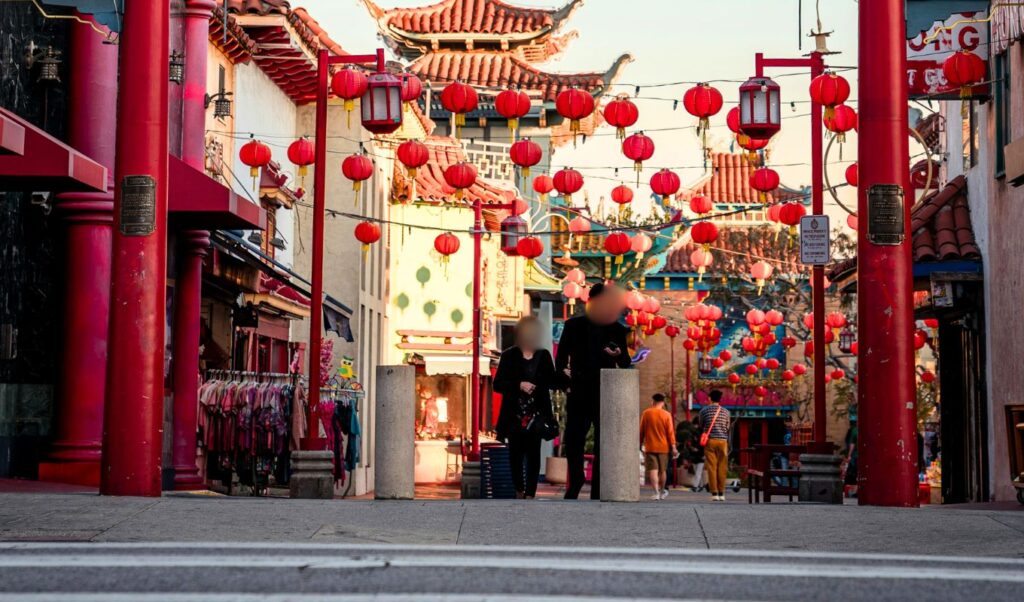Japan has urged its nationals in China to exercise increased caution due to escalating tensions between the two countries. This tension intensified following statements by Japanese Prime Minister Sanae Takaichi regarding Taiwan, the island claimed by Beijing. “During your movements, you should pay particular attention to your surroundings, especially for the presence of any suspicious individuals. Try to move in groups whenever possible,” stated the announcement posted yesterday, Monday, on the website of the Japanese embassy in Beijing.
“Avoid crowded places or locations that might be considered gathering spots for Japanese people,” the announcement further noted. “If you see any person or group that appears suspicious, distance yourself and leave the area immediately,” the announcement emphasized. The warning published on the Japanese embassy website also advises Japanese citizens to “respect local customs and be careful with their words and behavior when interacting with locals“.
China-Japan relations crisis erupted after Takaichi’s statements
Japan’s government spokesperson, Minoru Kihara, said today that these specific guidelines were issued “based on a comprehensive assessment of the political situation, including the security situation in the country or region in question, as well as social conditions.” The China-Japan relations crisis erupted following Takaichi’s statements on November 7, according to which any military attack against Taiwan could justify deploying Japanese forces to defend the island under the principle of “collective legitimate defense,” provided for in Japanese law adopted in 2015.
China considers Taiwan a province that it has not yet managed to reunite with the rest of the country since the end of the civil war in 1949. Moreover, Beijing has not ruled out resorting to force to regain control of Taiwan, while intensifying military pressure on the island. The Chinese embassy in Tokyo had characterized Takaichi’s statements as “openly provocative,” estimating that they “seriously harm the climate of exchanges between the peoples.”
In a post on X, which has since been deleted, China’s consul general in Osaka, Xue Jian, had threatened that “the dirty neck involved (in foreign affairs) must be cut without the slightest hesitation.” Immediately afterward, Tokyo and Beijing summoned their ambassadors for consultations.
Economic interdependence
It should be noted that in an effort to reduce tensions, Masaaki Kanai, a senior official from Japan’s Foreign Ministry for Asia-Pacific affairs, arrived in Beijing yesterday. According to the Jiji agency, today he visited the Chinese Foreign Ministry, where he is expected to meet with his Chinese counterpart, Liu Jinsong. The escalation in bilateral relations tensions raises fears of serious economic consequences. Beijing called on Chinese citizens to avoid travel to Japan, resulting in Japanese stocks linked to tourism and retail recording declines yesterday, Monday (18/11).
The two largest Asian economies are closely linked, with China being the largest source of foreign tourists for Japan. In the first nine months of 2024, the archipelago welcomed 7.5 million Chinese tourists, according to official Japanese data, a 42% year-on-year increase, with this number representing one quarter of foreign tourists who visited Japan. Furthermore, Chinese visitors spent the equivalent of 3.28 billion euros in Japan in the third quarter of the year. Already, the largest Chinese airlines proposed over the weekend to fully compensate their customers for tickets they have purchased to Japan.
Meanwhile, Beijing announced it is postponing the screening in Chinese cinemas of at least two Japanese films, as reported yesterday evening by the China Film News newspaper, which is supervised by an official Chinese organization. Before taking office on October 21, Takaichi was considered ultraconservative, a “hawk” in her relations with Beijing, and regularly visited the Yasukuni shrine, which honors Japanese war dead from World War II, including 14 convicted war criminals. China considers such visits “serious provocations.”




